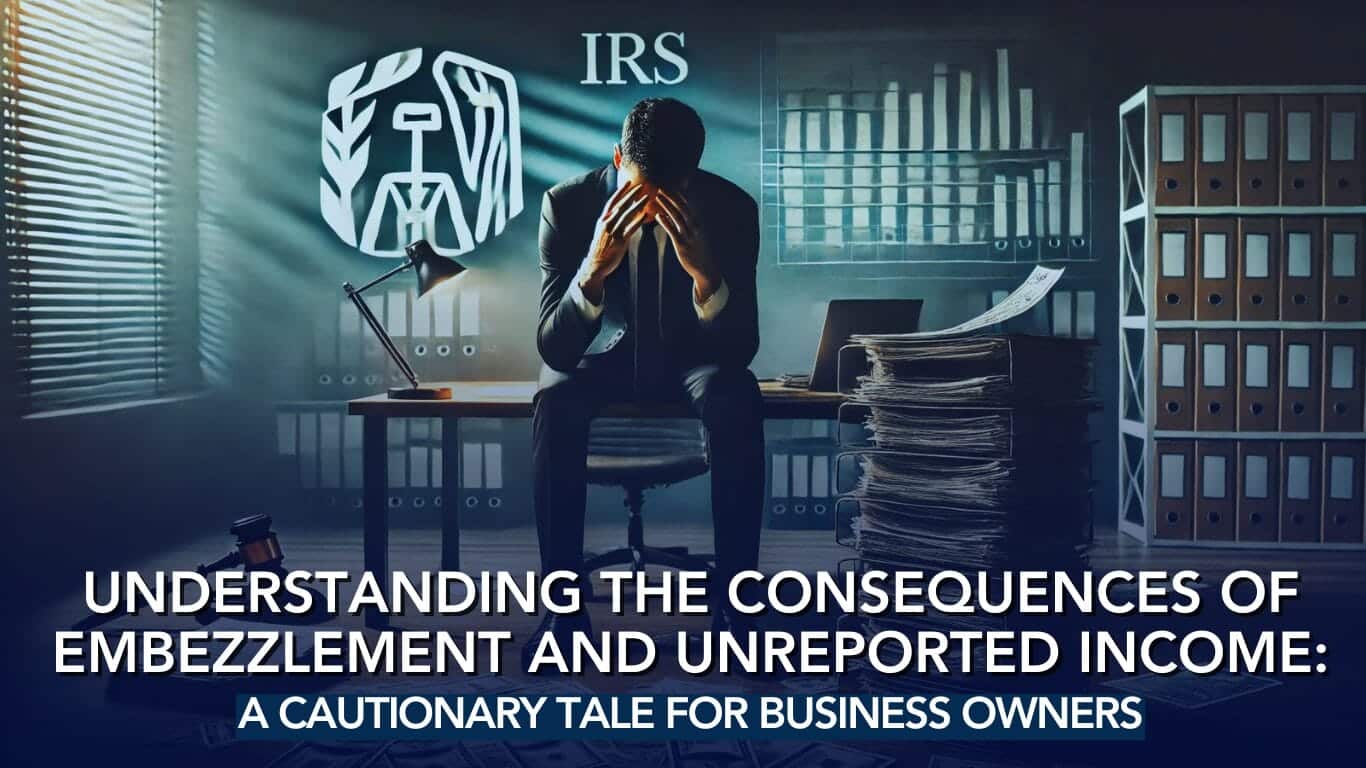
Introduction
For many business owners, navigating the complex world of finance and taxation can be daunting. However, understanding the potential consequences of financial mismanagement is crucial. A recent case involving Keith Taylor, founder of the charity Modest Needs, highlights the severe repercussions of embezzlement and unreported income. This post delves into Taylor’s case to uncover lessons for business owners and underscores the importance of adherence to IRS regulations.
The Case of Keith Taylor
Keith Taylor, who established the non-profit organization Modest Needs, was found guilty of embezzling $2.5 million from the charity. Modest Needs was designed to assist low-income families with unexpected expenses through crowdfunding. Instead of serving this noble purpose, Taylor diverted these funds for personal use. He spent lavishly on dining at upscale restaurants, luxury apartment rent in Manhattan, and even personal cosmetic surgeries. Additionally, Taylor created a fictitious board of directors to cover his tracks, falsely claiming their approval for his expenditures.
Legal and Financial Repercussions
Embezzlement from a non-profit not only breaches ethical standards but also violates several IRS regulations and federal laws. In Taylor’s case, the unreported income and misuse of charity funds could lead to significant legal consequences, including possible prison time and substantial fines. Under IRS rules, any income, whether legally or illegally earned, must be reported. Failure to do so can result in penalties under Title 26 USC § 7201, which deals with tax evasion.
Lessons for Business Owners
- Transparent Record Keeping: Maintain clear and transparent financial records. Use proper accounting methods to track every transaction, which not only simplifies tax reporting but also builds trust with stakeholders.
- Ethical Management: Uphold high ethical standards. Mismanagement of funds not only harms your reputation but also attracts legal consequences.
- Regular Audits: Conduct regular internal and external audits. These can serve as a deterrent to potential fraudulent activities and help catch any discrepancies early.
- Understanding Tax Obligations: Familiarize yourself with your tax obligations. IRS Publication 538 provides detailed information on accounting periods and methods, helping business owners ensure compliance.
- Professional Advice: Seek professional tax advice. Complex situations, especially those involving large amounts of money or charitable contributions, require expert guidance to ensure compliance with tax laws.
Conclusion
The case of Keith Taylor serves as a powerful reminder of the consequences of financial mismanagement. Business owners must adhere to financial and ethical guidelines to avoid similar pitfalls. Embezzlement and unreported income carry severe repercussions, from damaged reputations to legal penalties, including imprisonment and fines. By fostering a culture of transparency and ethical behavior, business owners can protect their operations from significant risks and ensure long-term success.
Call to Action
Ensure your business stays on the right side of the law. Consider consulting with a tax advisor to review your financial management practices and tax reporting. Remember, a proactive approach to tax compliance can safeguard your business from legal troubles and secure its future.







